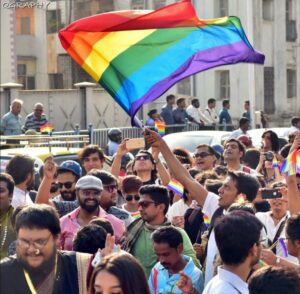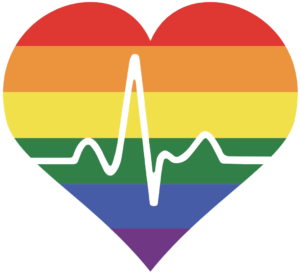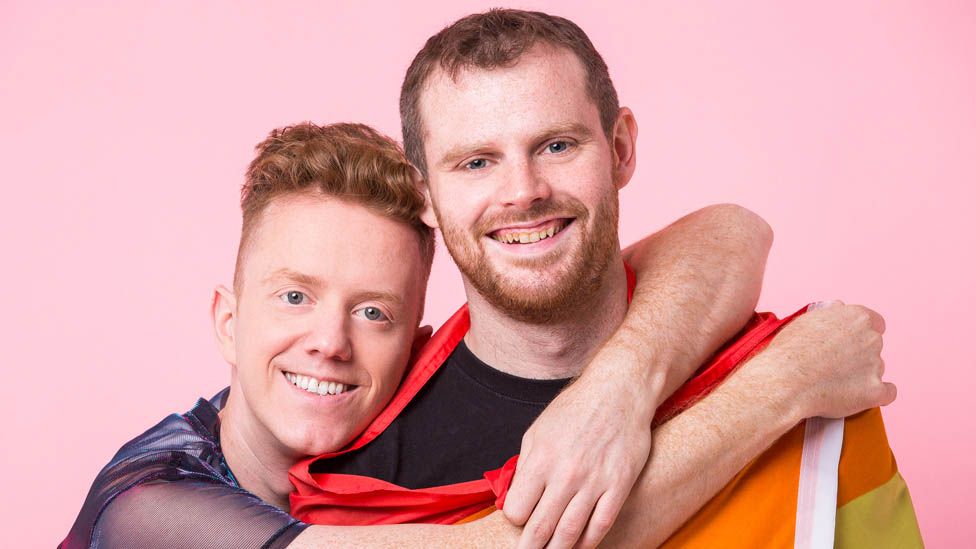The struggle for gay human rights has been a long and arduous journey, characterized by triumphs and setbacks, as societies grapple with issues of sexual orientation and gender identity. In this article, we will delve into the significance of gay human rights, examine the progress made thus far, explore the challenges faced by the LGBTQ+ community, highlight international efforts, discuss advocacy and activism, address intersectionality, emphasize the importance of education and awareness, and finally, look towards the future of gay human rights.
Contents
Understanding LGBTQ+ Rights

Sexual orientation is a deeply personal aspect of one’s identity and encompasses a range of orientations, including homosexuality, bisexuality, and heterosexuality. Gender identity, on the other hand, refers to an individual’s internal sense of their gender, which may or may not align with the sex assigned to them at birth. It is crucial to recognize and respect these diverse aspects of human identity to promote inclusivity and equality.
Throughout history, LGBTQ+ individuals have faced marginalization, discrimination, and persecution due to prevailing societal norms and prejudices. It was not until the 20th century that significant strides were made in the fight for LGBTQ+ rights. The Stonewall Riots of 1969 in New York City, sparked by police raids on a gay bar, marked a turning point in the LGBTQ+ rights movement, galvanizing activists and igniting a global fight for equality.
Progress in Gay Human Rights
The progress in gay human rights has been significant in many parts of the world over the past few decades. Here are some key milestones and advancements:
- Decriminalization of homosexuality: Many countries have decriminalized consensual same-sex sexual activity, overturning laws that once criminalized homosexuality. This trend started in the 20th century and continues to this day. As of 2021, over 70 countries have repealed laws that criminalize same-sex sexual relationships.
- Legal recognition of same-sex relationships: There has been a substantial increase in the legal recognition of same-sex relationships worldwide. Several countries have legalized same-sex marriage, granting same-sex couples the same rights and benefits as heterosexual couples. Notable examples include the Netherlands (2001), Canada (2005), and the United States (2015).
- Anti-discrimination laws: Many countries have enacted legislation to protect individuals from discrimination based on sexual orientation. These laws aim to ensure that gay, lesbian, and bisexual individuals are not discriminated against in employment, housing, education, and public services.
- Adoption and parenting rights: Progress has been made in granting adoption and parenting rights to same-sex couples. In many countries, same-sex couples can now adopt children or have legal recognition for parenting rights, allowing them to provide a stable and nurturing environment for their families.
Challenges Faced by the LGBTQ+ Community

The LGBTQ+ community faces various challenges around the world, including:
- Legal discrimination: In many countries, laws explicitly or implicitly discriminate against LGBTQ+ individuals. These discriminatory laws may criminalize same-sex relationships, prohibit same-sex marriage, or deny legal recognition and protections for LGBTQ+ individuals and families.
- Violence and hate crimes: LGBTQ+ individuals often face higher rates of violence, hate crimes, and harassment due to their sexual orientation or gender identity. This includes physical attacks, verbal abuse, and bullying, both in public spaces and within private settings.
- Social stigma and discrimination: LGBTQ+ individuals often face social stigma, prejudice, and discrimination in their daily lives. This can manifest in various ways, such as exclusion from family or community, workplace discrimination, and denial of services.
- Lack of legal protection: In many jurisdictions, there is a lack of comprehensive legal protections for LGBTQ+ individuals. This can leave them vulnerable to discrimination in employment, housing, healthcare, and other essential areas of life.
- Access to healthcare: LGBTQ+ individuals may face challenges in accessing adequate healthcare due to discrimination, lack of understanding from healthcare providers, or limited availability of LGBTQ+ inclusive healthcare services. This can have negative impacts on their physical and mental well-being.
International Efforts for Gay Human Rights
The United Nations has been a key advocate for LGBTQ+ rights, recognizing them as human rights and condemning discrimination based on sexual orientation and gender identity. The UN Human Rights Council and other specialized agencies have been instrumental in promoting equality worldwide. However, the fight for gay human rights is not limited to international organizations and requires action at national and grassroots levels.
While progress has been made in some regions, others still lag in recognizing gay human rights. Varying cultural, religious, and political contexts shape attitudes toward homosexuality, resulting in stark disparities worldwide. Also, Advocacy and education efforts must take into account these diverse perspectives and work towards bridging the gap between different regions.
Advocacy and Activism
Advocacy and activism play crucial roles in advancing gay human rights and promoting equality for LGBTQ+ individuals. They involve raising awareness, mobilizing support, and advocating for policy changes and societal acceptance. Here are some key aspects of advocacy and activism in the context of gay human rights:
- Awareness and Education: Advocacy efforts often begin with raising awareness about the challenges and discrimination faced by LGBTQ+ individuals. This can involve sharing personal stories, organizing educational campaigns, and dispelling myths and misconceptions surrounding sexual orientation and gender identity.
- Grassroots Activism: Grassroots activism involves individuals and communities taking action at a local level to promote gay human rights. This can include organizing protests, rallies, and demonstrations, as well as engaging in community outreach, peer support, and organizing local events and initiatives.
- Lobbying and Policy Change: Advocacy efforts often target policymakers, urging them to enact laws and policies that protect the rights of LGBTQ+ individuals. This involves lobbying, meeting with legislators, submitting petitions, and engaging in public advocacy campaigns to influence policy decisions.
- Legal Action and Litigation: Legal advocacy is essential in challenging discriminatory laws and policies through litigation. Activists and organizations may initiate legal cases to bring attention to human rights violations, seek legal remedies, and set legal precedents that advance gay human rights.
- Collaboration and Coalitions: Advocacy is often more effective when different organizations and individuals work together. Building coalitions and collaborating with other human rights movements can amplify voices and create stronger collective efforts toward achieving equality and social change.
Intersectionality and Gay Human Rights

Intersectionality is a framework that recognizes that individuals experience multiple interconnected forms of discrimination and oppression based on intersecting identities, such as race, gender, sexual orientation, socioeconomic status, disability, and more. When discussing gay human rights, it is crucial to consider intersectionality to ensure inclusivity and address the specific challenges faced by LGBTQ+ individuals who belong to marginalized communities.
Here are some key points regarding intersectionality and its relevance to gay human rights:
- Multiple forms of discrimination: Intersectionality acknowledges that LGBTQ+ individuals can face discrimination and marginalization not only due to their sexual orientation but also due to other aspects of their identity. For example, LGBTQ+ people of color may experience racism within both LGBTQ+ communities and their racial or ethnic communities, adding additional layers of discrimination.
- Compounded discrimination: Intersectionality recognizes that discrimination and marginalization can compound, creating unique experiences and challenges. For instance, a transgender person who is also gay may face discrimination based on both their gender identity and sexual orientation.
- Access to resources and services: Intersectionality highlights disparities in access to resources, services, and opportunities that exist for LGBTQ+ individuals who belong to marginalized groups. For example, LGBTQ+ individuals who are economically disadvantaged may face additional barriers in accessing healthcare, legal support, or education.
Promoting Education and Awareness
Comprehensive and inclusive education plays a vital role in combating discrimination and promoting acceptance. Incorporating LGBTQ+ history, literature, and inclusive sex education into school curricula can foster understanding, empathy, and respect. By educating future generations about diverse sexual orientations and gender identities, we can create a more inclusive society.
Support from allies is crucial in the fight for gay human rights. Allies can use their privilege and platforms to amplify LGBTQ+ voices, challenge discrimination, and advocate for inclusive policies. Furthermore, by standing in solidarity with the LGBTQ+ community, allies contribute to the dismantling of heteronormative and cisgender biases, fostering a more inclusive and equitable society.
Future Outlook for Gay Human Rights
While significant progress has been made, there are still challenges to overcome on the path toward full equality for LGBTQ+ individuals. Persistent discrimination, legal loopholes, and societal prejudices continue to hinder progress. To address these challenges, continued advocacy, policy reform, and public education are essential. By working together, we can create a future where everyone can live with dignity and equality, regardless of their sexual orientation or gender identity.
Individuals have a crucial role to play in advancing gay human rights. Whether through supporting LGBTQ+ organizations, challenging discrimination in everyday life, or engaging in conversations that promote understanding, every action counts. By creating inclusive spaces, fostering dialogue, and advocating for change, we can collectively shape a more just and equal world for all.
Conclusion
The journey toward gay human rights has been marked by progress, setbacks, and ongoing challenges. Legal advancements, social acceptance, international efforts, and advocacy have contributed to a more inclusive society. However, discrimination, violence, and disparities persist, necessitating continued action and awareness. By addressing intersectionality, promoting education, and embracing allyship, we can create a future where gay human rights are universally recognized and respected.
Life may sometimes be challenging if you are gay, but Online Gay Counseling can help. Get experienced LGBTQ therapists at PrideMantra: Book a trial LGBTQ therapy session.


